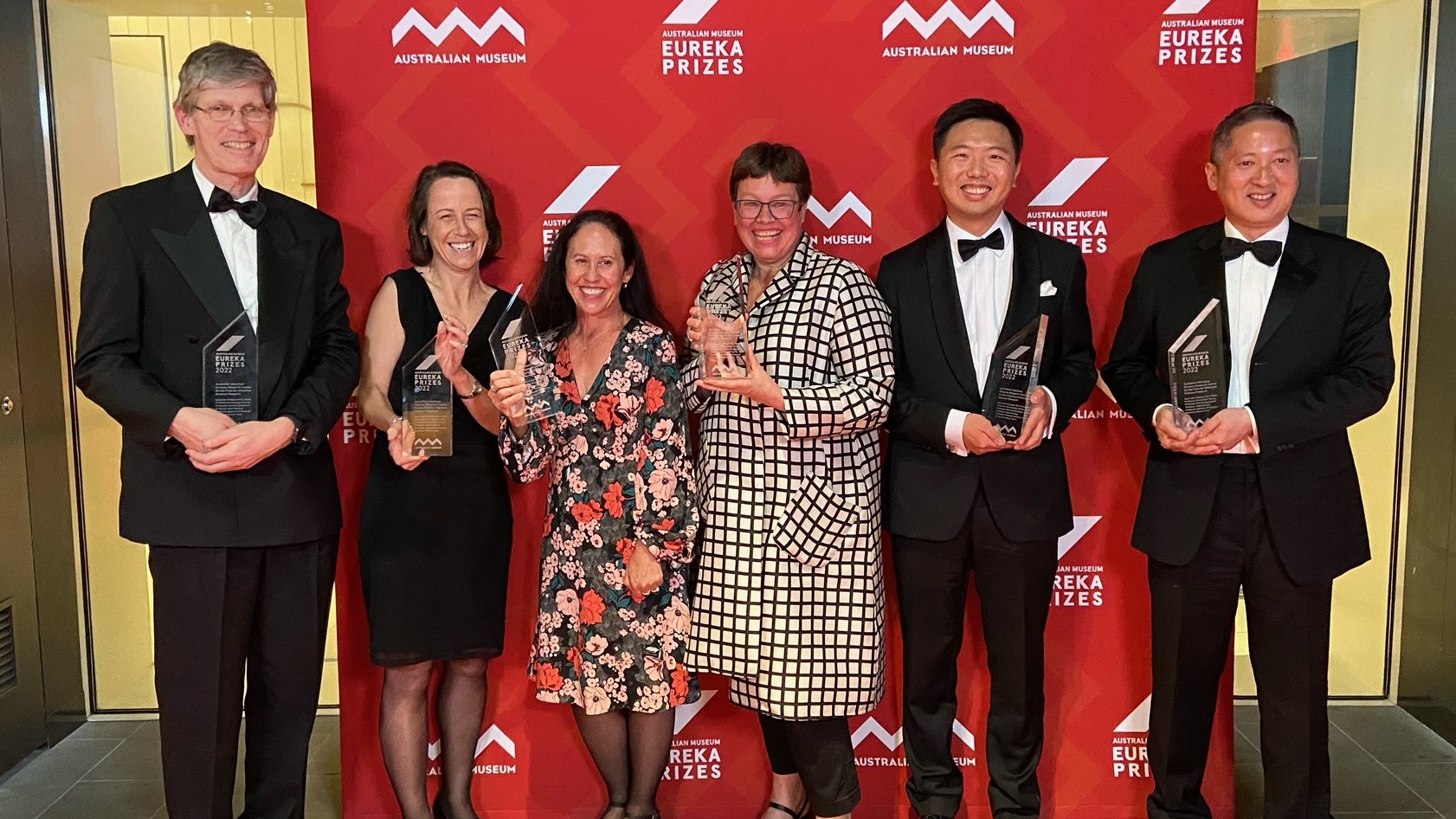University of Melbourne researchers win prestigious Eureka Prizes

Two research teams have won Australian Museum Eureka Prizes, considered Australia’s leading science awards honouring excellence across research and innovation, leadership, science engagement and school science.
Researchers from the University of Melbourne, Doherty Institute and Monash University were awarded the Australian Infectious Diseases Research Centre Eureka Prize for Infectious Diseases Research for their work exploring new routes of transmission of sexually transmitted infections (STIs), trialling novel interventions to tackle infections, and optimising antimicrobial therapy for STIs.
Doherty Institute’s Professor Deborah Williamson, University of Melbourne Professor Jane Hocking, Monash University’s Associate Professor Eric Chow and Professor Christopher Fairley, Professor Catriona Bradshaw and Professor Marcus Chen, are recognised globally as among the top-ranked most active researchers in the field of STIs.
The team’s research has changed Australian and international chlamydia and Mycoplasma genitalium treatment guidelines; pioneered the implementation of resistance-guided therapy for Mycoplasma genitalium; produced ground-breaking, world-first studies integrating genomic and epidemiologic data to help understand the epidemiology of STIs; and made new discoveries, establishing saliva as playing a key role in the transmission of gonorrhoea leading to an innovative mouthwash intervention to reduce transmission.
“I feel incredibly fortunate to work with some of Australia’s leading clinician-scientists and researchers in infectious diseases,” Professor Williamson said.
“It is an honour for our enduring collaboration to be recognised with such a prestigious award, and demonstrates the importance of strong, multidisciplinary research to tackle major public health problems.”
A joint project with La Trobe University, Garvan Institute of Medical Research and Peter MacCallum Cancer Centre (University of Melbourne partner), which aims to revolutionise early-stage cancers are diagnosed, won the ANSTO Eureka Prize for Innovative Use of Technology.
Co-inventors Professor Brian Abbey and Dr Eugeniu Balaur from La Trobe University, and Peter Mac’s Associate Professor Belinda Parker, who led its clinical validation applied a patented coating created with cutting-edge nanofabrication technology, the collaborators behind NanoMslide are turning a glass microscope slide into a diagnostic lab.
Cancer cells interact with the coating and produce an instant colour variation, enabling fast, accurate, cost-effective diagnoses without the need for specialised equipment.
“NanoMslide has enormous potential for enabling faster, cheaper and more accurate diagnosis of early-stage breast cancers and may also be readily adapted to early diagnosis of a host of cancers including lung, melanoma and colon cancer,” Associate Professor Parker said.
“Not only is it a game-changing technology in cancer diagnosis, there are further potential applications in industry and we’ve just scratched the surface of what is possible with NanoMslide.”
The University also congratulates finalists in the category of STEM Inclusion, the Victorian Indigenous Engineering Winter School (VIEWS) and Queers in Science, which includes Dr Mohammad Taha from the Faculty of Engineering and IT.